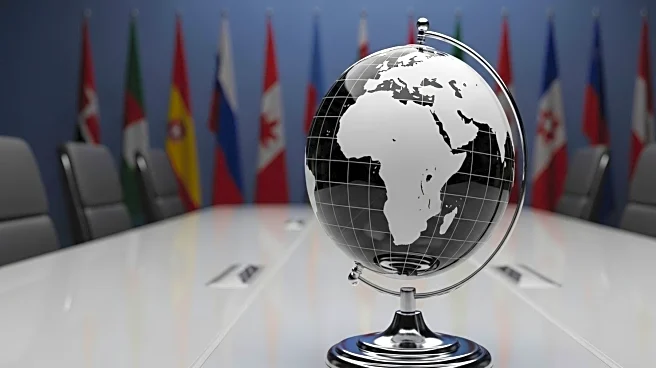What's Happening?
European diplomats met with Iranian officials in Geneva to discuss the resumption of negotiations on Iran's nuclear program. The talks aim to prevent the reinstatement of sanctions that were lifted under the 2015 nuclear deal, which is set to expire on October 18. The European signatories have offered to extend the deadline for negotiations, provided Iran addresses concerns about its uranium stockpile and allows access to U.N. inspectors. Despite the meeting, there was little indication of progress, with Iranian Deputy Foreign Minister Kazem Gharibabadi emphasizing Iran's commitment to diplomacy. The discussions come after Iran halted talks with the U.S. following a conflict involving Israel and the U.S. earlier this year.
Why It's Important?
The outcome of these negotiations holds significant implications for international relations and regional stability. The potential reinstatement of sanctions could further strain Iran's economy and escalate tensions in the Middle East. For the U.S. and its allies, ensuring Iran's compliance with nuclear agreements is crucial for preventing nuclear proliferation. The diplomatic efforts also reflect the broader geopolitical dynamics involving major powers and their influence in the region. Successful negotiations could pave the way for renewed diplomatic engagement and reduce the risk of conflict.
What's Next?
The European signatories and Iran face a tight deadline to reach an agreement before the expiration of the 2015 deal. If progress is not made, the reinstatement of sanctions could lead to further economic and political challenges for Iran. The international community will be closely monitoring the situation, with potential implications for U.S. foreign policy and regional alliances. The outcome of these talks could also influence future diplomatic strategies and the role of international organizations in monitoring nuclear activities.











